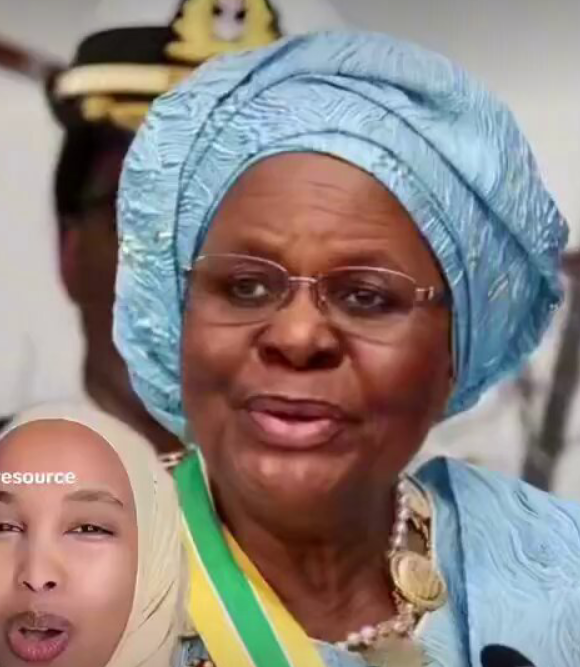
Namibia’s First Female President Enforces Visa Reciprocity for Western Visitors

In a bold and unprecedented move, Namibia’s first female president has declared that American and European travelers will now be required to obtain a visa before entering her country. This decision, she emphasized, is rooted in the principle of fairness and reciprocity, as Namibian citizens are required to secure visas when visiting the West. The policy is set to mark a significant shift in Africa’s approach to international relations, reinforcing the continent’s autonomy in global diplomacy.
The newly implemented visa requirement underscores a growing sentiment among African leaders advocating for a more balanced engagement with Western nations. In her address, the Namibian leader articulated a stance that resonated with many across the continent: if Namibians must go through bureaucratic processes to enter Europe and the United States, then it is only just that Western visitors undergo the same procedures when coming to Namibia. This, she asserted, is a step toward reshaping Africa’s global interactions.
For decades, African travelers have faced stringent visa requirements, often entailing extensive documentation, high application fees, and long waiting periods. Conversely, Western tourists and business travelers have enjoyed relatively easy access to many African nations, often benefiting from visa-free entry or visas upon arrival. The Namibian president’s policy aims to challenge this long-standing asymmetry, asserting the country’s sovereignty and its right to determine who enters its borders under equal conditions.
The move has been met with a mix of reactions. Within Namibia and broader African circles, many have praised the decision as a necessary step toward self-determination. Social media platforms have been flooded with messages of support, with many Africans hailing the policy as an example of how the continent should engage with Western powers moving forward. The term “New Direction Africa” has gained traction online, symbolizing a shift away from historical inequalities and towards a more assertive and self-reliant Africa.
However, Western reactions have been varied. Some international travelers and businesses have expressed concerns that stricter visa regulations might hinder tourism and economic ties between Namibia and Western countries. Tourism is a significant contributor to Namibia’s economy, with visitors flocking to the country’s breathtaking landscapes, including the Namib Desert, Etosha National Park, and the Skeleton Coast. Some stakeholders worry that the new visa policy could deter potential tourists, potentially impacting revenue streams for local businesses.
Diplomatic discussions have also intensified in response to Namibia’s new stance. Western governments are reportedly evaluating their next steps, with some officials considering negotiations to reach a mutually beneficial agreement. Analysts suggest that the Namibian government’s position could serve as a catalyst for other African nations to reconsider their visa policies, leading to a broader reevaluation of international travel regulations between Africa and the West.
Despite concerns, Namibia remains confident in its decision. The president has emphasized that her government is open to discussions with Western counterparts but remains firm in its commitment to ensuring a balanced and equitable approach to international travel. She highlighted that the policy is not meant to deter visitors but to establish a standard of mutual respect between nations.
In light of this development, some African leaders are reportedly considering implementing similar policies. There is a growing belief that visa reciprocity could serve as a powerful tool in negotiating better terms for African citizens traveling abroad. If more nations follow Namibia’s example, the global travel landscape could witness a significant transformation, potentially altering the traditional power dynamics that have long favored Western travelers.
Namibia’s move aligns with a broader trend of African nations asserting greater control over their international engagements. In recent years, several countries have pushed back against one-sided trade deals, foreign military interventions, and exploitative economic arrangements. The visa policy is yet another example of how African leadership is reimagining the continent’s place in the world, prioritizing dignity, equality, and mutual respect in global relations.
As the world watches how this policy unfolds, one thing is clear: Namibia’s first female president has made a statement that goes beyond visas. She has sent a powerful message about Africa’s new direction—one that demands equal treatment, respect, and fairness on the global stage. Whether this will lead to a larger continental movement remains to be seen, but for now, Namibia stands as a bold example of Africa’s evolving diplomatic stance.


